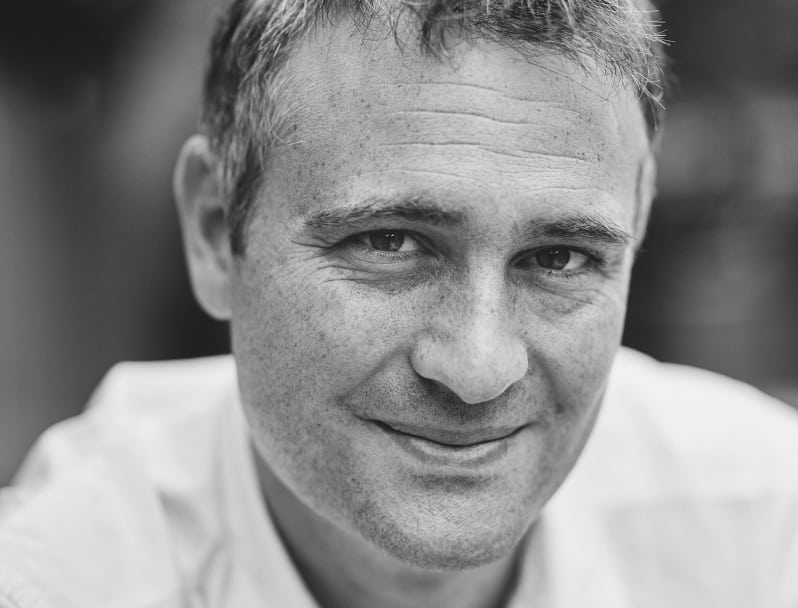His £74.4m investment trust launched in 2015 and is focused on the efficient use of energy and resources.
But, Goldsmith (pictured) would prefer investors hold off judging the investment trust by its three-year track record until H1 2019. Its share price has fallen 30.5% since launch as it approaches its three-year track record on 31 July, according to FE Analytics.
“We had a really terrible start,” he told Portfolio Adviser. “We’d been in a hurry to put money to work. We made mistakes in sizing and selection, principally in the solar space.”
Cleantech venture capital assets acquired at launch hit the net asset value, as did an equity position in Sun Edison, which faced bankruptcy in 2016, along with Abengoa, in which Menhaden had senior bonds exposure.
A significant investor in Menhaden also made a quick exit, hitting the share price.
“There was a hedge fund that was on the one hand justifiably spooked by the poor performance in the early months, but the guy responsible for the position also changed jobs,” he said.
In the middle of 2016, the portfolio moved out of venture and growth capital. The team has since beefed up income generation in the portfolio, principally through infrastructure assets.
Credit investor Luciano Suana was also added to the “under-resourced” team, Goldsmith said. “He’s a very much a return-of-my-capital rather than return-on-my-capital kind of guy.”
Since the share price hit a low of 53.5p on 13 April 2016 the investment trust has returned 22.8%.
Airbus and VW
Public equities account for 49.3% of the portfolio, yield investments 11.3% and private investments 28.2%, according to the investment trust’s June fact sheet.
“In private equity we are not looking at venture or growth capital anymore with binary outcomes. We’re looking for assets that produce cashflows,” Goldsmith said.
Airbus is the investment trust’s biggest listed equity position, accounting for 10.9%.
“The basis for holding Airbus is that aviation is not going away and therefore we may as well invest in the most efficient use of fuel by aviation.”
Alphabet is another slightly “out there” position within public equities, he said. It accounts for 7.8% of the portfolio.
“Google is 100% powered by renewable energy, it’s the single biggest buyer of renewable energy on earth. It is the biggest user of power by all the tech companies so it’s hugely important they use renewable energy. It’s also used artificial intelligence to improve the efficiency of its data centres by up to 40%.”
Volkswagen, which had been 7.7% of the portfolio in April, was dropped the following month.
“We still believe VW will be a global leader in electrified vehicles, but we’re wary of the Trump trade tariffs situation on autos and we’re wary of holding an automaker at this late stage in the cycle. For that reason we’ve decided to crystallise our significant gains.”
Menhaden Capital performance
| 1m | 3m | 6m | 1yr | |
| Menhaden Capital | 0.00 | 7.95 | 4.40 | 6.34 |
| Sector : IT Environmental | -0.76 | 7.27 | 2.24 | 9.38 |
Source: FE Analytics
‘Erroneous’ discount
The current discount on the investment trust is 26.3%, which Goldsmith describes as erroneously steep.
The investment trust sits in the specialist environmental sector alongside the Impax Environmental Markets and Jupiter Green investment trusts, which trade at discounts of 3.8% and 3% respectively.
There are no plans for discount control, said Goldsmith. “Except for the continuation vote in May 2020, whereby shareholders will decide if we continue or if we wind up.”
At a 30% discount, Goldsmith concedes investors may eye the vote as a way to make a quick return.
“That’s their prerogative. I would hope by the time of the continuation vote we’ve got a three to four-year track record of performance at low volatility and that the share price discount to NAV has narrowed. If one or both of those things haven’t happened shareholders may be tempted to vote for a wind up.”
However, he said he wants the investment trust to be around for decades not years.
Not an impact fund
The representation of retail wealth managers on the share register has almost doubled from 10% to just under 20% over three years. The majority of shareholders are not sustainable investors, said Goldsmith.
Menhaden’s small Mayfair offices house the investment team while distribution is outsourced to Frostrow Capital. Numis is the investment trust’s broker.
Goldsmith said: “We have investors who are in there because of the [sustainable] theme. We are not per se an ethical fund or an impact fund, although we do produce an impact report. We are a thematic fund.”
Goldsmith suggests wealth managers view the investment trust as a global equities or infrastructure position.
Investors are also attracted to deals that are off market.
The investment trust co-invested with private equity giant KKR in X-Elio, which builds and operates solar assets, and Calvin, a UK energy metering company. The former is the investment trust’s largest position at 18.6% of the portfolio, while the latter represents a 4.7% allocation.
The plunging cost of solar photovoltaic and onshore and offshore wind means in many parts of the world renewables are the cheapest source of power, he said.
“In places like Mexico, Chile, India and so on, you simply can’t compete with solar without some government support.”







